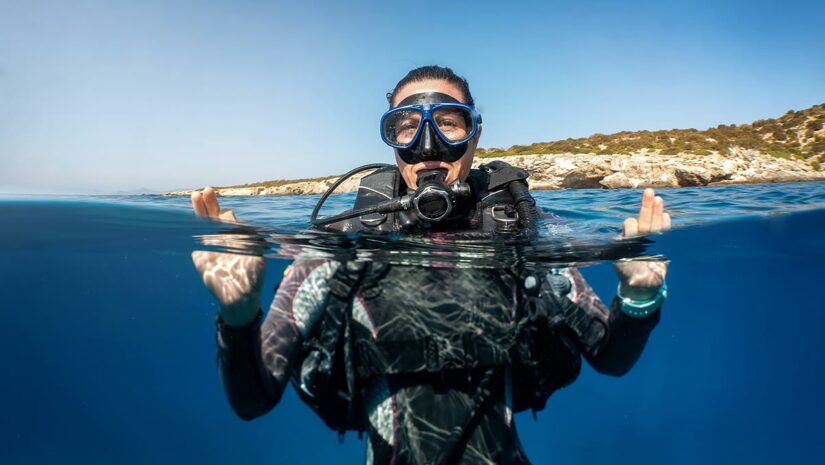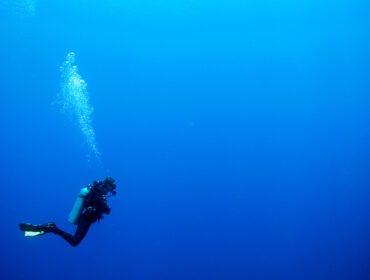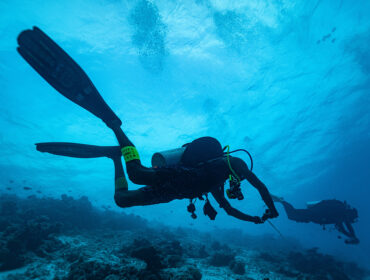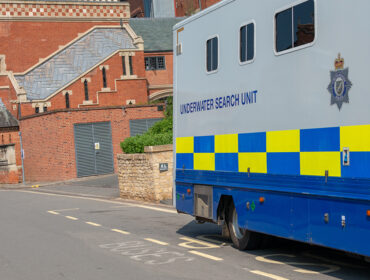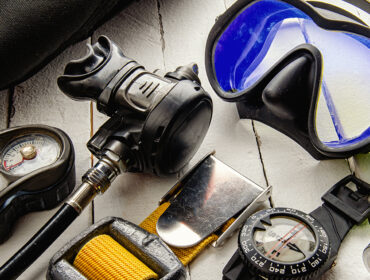Do you wear prescription glasses or contacts? And do you wonder if this can become an issue when scuba diving? Worry not. In most cases there’s an easy fix for scuba diving with glasses or contacts. The two most common solutions to consider are prescription glasses in your dive mask or soft prescription contact lenses.
The underwater world is a place of magic, filled with colors and sea life in all shapes and sizes waiting for you to discover. You can enjoy it just as much as someone with 20/20 vision with the right mask or lenses. Scuba diving has developed to the point that, with the right training and equipment, even people with impaired vision can dive safely. Did you know that there are certified blind divers? How amazing is that.
Now, let’s dive into all of the options you have when diving with glasses or contacts.
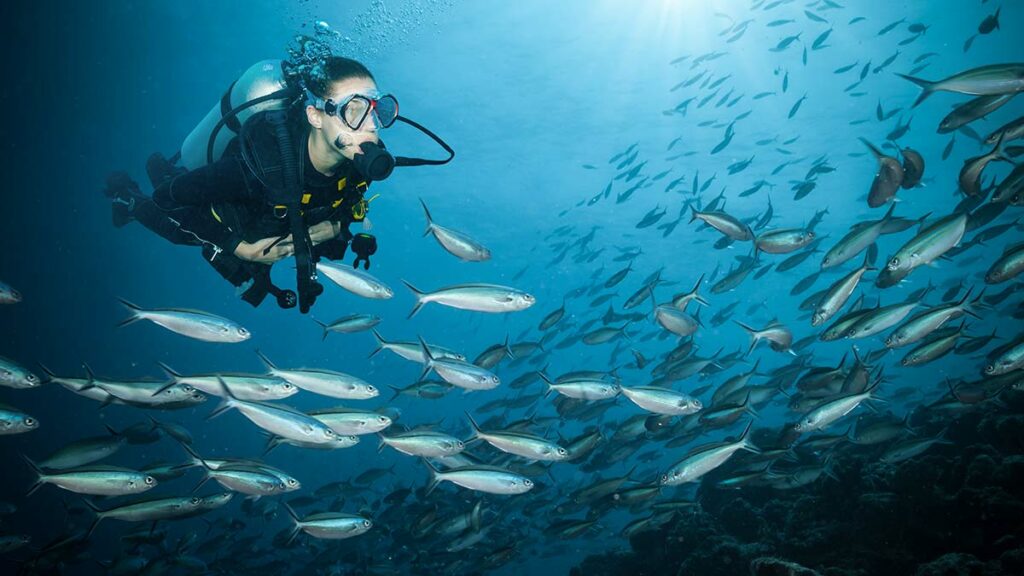
Scuba diving with glasses or contacts: The gear you need
Prescription Scuba Diving Mask
One of the easiest ways to replace your contact lenses or prescription glasses is by getting a prescription dive mask. Today’s technology makes it possible that almost any dive mask can be fitted with the right lenses as per your prescription.
In some cases, scuba mask manufacturers already have prescription glasses ready to go. This is certainly the case when you only need to correct your spherical diopter.
Spherical (S) is the degree of nearsightedness or farsightedness you have. When you have a minus number, it means you are nearsighted. For example, when you have a prescription of -1.25, it means you’re nearsighted. When you have a plus prescription (e.g. +2.00), it means you are farsighted. When it comes to prescription glasses for dive masks, glasses or lens manufacturers can customize the mask to your exact vision needs.
Brands including Aqualung, Cressi, Mares, ScubaPro, and TUSA have modern dive masks which are compatible with corrective lenses. These dive masks are used by divers both with and without the need for prescription glasses.
Prescriptions also include numbers about the cylinder or astigmatism (shape of your cornea) and axis (degree of astigmatism). Depending on your prescription results, it might be in your best interest to have prescription glasses made for you personally. Other options include dive masks with bifocal, and multifocal lenses.
Magnification Lenses (Readers)
Do you only use glasses for reading? And would you simply like to be able to read your gauge, your computer, or a slate? Then there’s an easy fix! Opt for magnification lenses that fit in any dive mask. They start at +1.00 and go all the way up to +3.00 (with +0.25 increments).
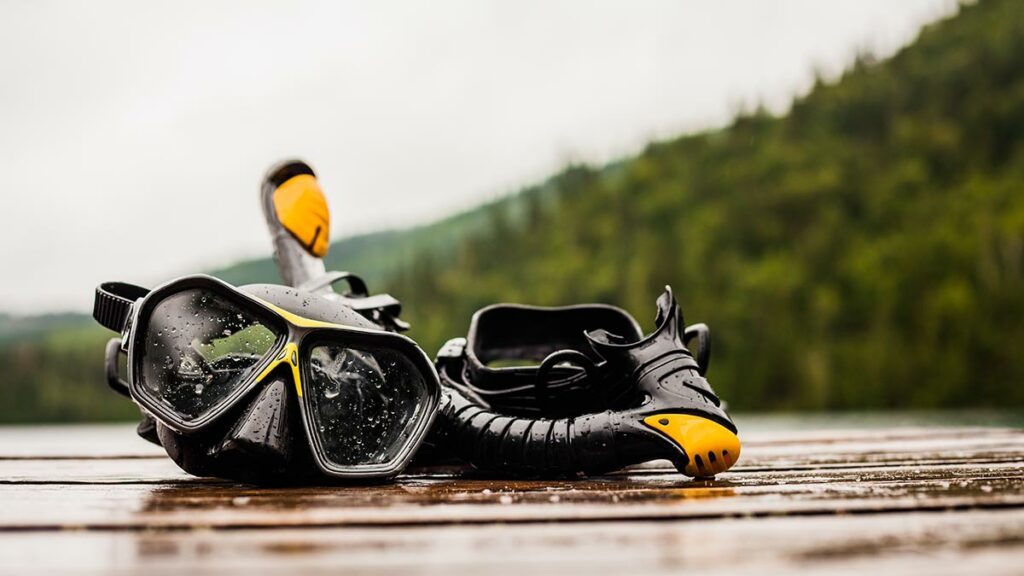
Hard Contact Lenses vs Soft Contact Lenses underwater
Another simple option you have is to wear contact lenses. But not all contact lenses are suitable for scuba diving. Soft contact lenses are a much safer choice than hard contact lenses because hard lenses can apply pressure to your eye at certain depths. This can be extremely painful. The same goes for gas permeable lenses. On top of that, hard lenses can also trap bubbles between your eye and the lens. This may lead to irritation.
Even worse, hard contact lenses can trap nitrogen that is trying to escape your cornea when ascending. This can lead to blurred vision after a dive. Fortunately, soft contact lenses do not have any of these issues and are a much better choice for scuba diving.
Soft contact lenses and diving
DAN (Divers Alert Network) recommends only using soft lenses when diving. Soft contact lenses allow nitrogen to escape, which is very important. This is important because when nitrogen can’t escape the body, it can lead to decompression sickness. On top of that, soft contact lenses are usually bigger, making it easier to keep them in your eyes when they get in contact with water. Mind you, it is advised to avoid opening your eyes if you’re not wearing your mask underwater. For example, when you’re practicing a skill that requires taking off your mask, you should keep your eyes closed. This is to avoid losing a contact lens.
In case you do lose a lens, it’s always smart to bring an extra set with you to the dive site. And last, but not least: blink a lot! The biggest issue you might run into with soft contact lenses is that salt and small water organisms come into your eyes. By blinking a lot, you keep that down to a minimum. Bring a small bottle of eye drops to use before and after diving to rinse of any saltwater that might have gotten in your eyes. This will help to keep your eyes from getting dry or irritated.
Always tell your buddy!
Please make sure your buddy knows you’re diving with contact lenses or a prescription mask. This way your buddy will know your vision can become impaired if you lose your lenses or mask. They will know you need help to resurface safely.
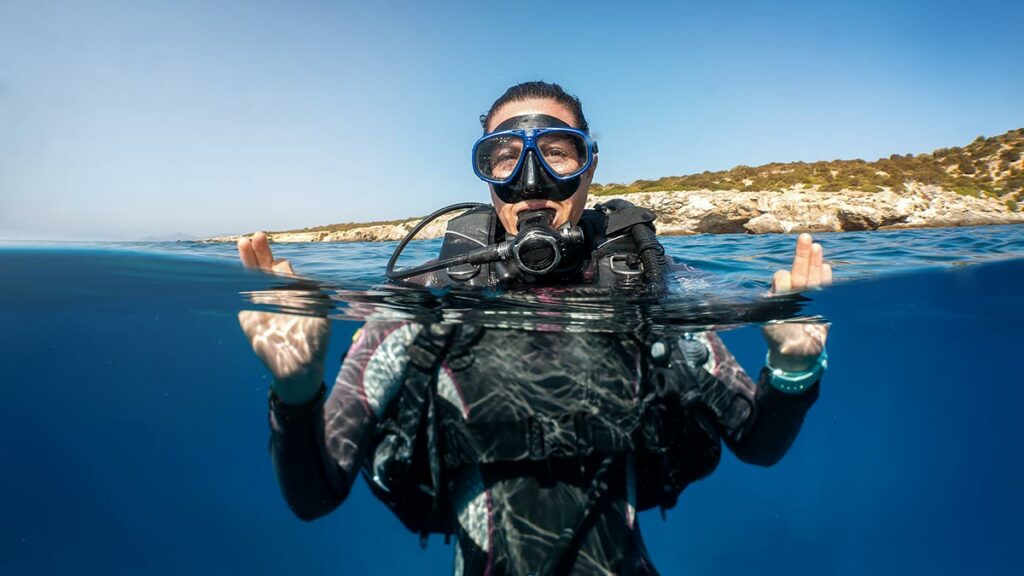
Scuba diving with impaired vision
Do you have severe visual impairment? Even then, scuba diving is still a possibility, but with certain measures and training in place. There are associations and foundations that specialize in training divers who are visually impaired or blind. Dive instructors are specifically trained in guiding and teaching those divers all the way up to diving in the ocean and even in wrecks.
One of the ways used to communicate underwater with a blind diver is by using a full face mask with a voice communication system. Another option is squeeze hand signals where the guide touches a specific finger to indicate that the diver has 1000 PSI left, or makes a fist of the diver’s hand indicating 500 PSI. Guides are also trained to keep visually impaired divers out of danger during a dive by making sure they don’t swim into any potential danger.
Conclusion
All in all, it just takes some planning and preparation to practice scuba diving when you normally wear glasses or contacts. There are very good solutions available for affordable prices, allowing you to enjoy scuba diving to the fullest.

